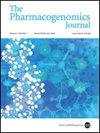A blockchain-based framework to support pharmacogenetic data sharing
IF 2.9
3区 医学
Q2 GENETICS & HEREDITY
引用次数: 3
Abstract
The successful implementation of pharmacogenetics (PGx) into clinical practice requires patient genomic data to be shared between stakeholders in multiple settings. This creates a number of barriers to widespread adoption of PGx, including privacy concerns related to the storage and movement of identifiable genomic data. Informatic solutions that support secure and equitable data access for genomic data are therefore important to PGx. Here we propose a methodology that uses smart contracts implemented on a blockchain-based framework, PGxChain, to address this issue. The design requirements for PGxChain were identified through a systematic literature review, identifying technical challenges and barriers impeding the clinical implementation of pharmacogenomics. These requirements included security and privacy, accessibility, interoperability, traceability and legal compliance. A proof-of-concept implementation based on Ethereum was then developed that met the design requirements. PGxChain’s performance was examined using Hyperledger Caliper for latency, throughput, and transaction success rate. The findings clearly indicate that blockchain technology offers considerable potential to advance pharmacogenetic data sharing, particularly with regard to PGx data security and privacy, large-scale accessibility of PGx data, PGx data interoperability between multiple health care providers and compliance with data-sharing laws and regulations.


支持药物基因数据共享的区块链框架
要在临床实践中成功实施药物遗传学 (PGx),患者的基因组数据必须在多种环境下由利益相关者共享。这给 PGx 的广泛应用带来了许多障碍,包括与可识别基因组数据的存储和移动有关的隐私问题。因此,支持安全、公平地访问基因组数据的信息化解决方案对 PGx 非常重要。在此,我们提出一种方法,利用在基于区块链的框架 PGxChain 上实施的智能合约来解决这一问题。PGxChain 的设计要求是通过系统的文献回顾确定的,确定了阻碍药物基因组学临床实施的技术挑战和障碍。这些要求包括安全性和隐私性、可访问性、互操作性、可追溯性和法律合规性。然后,开发了一个基于以太坊的概念验证实现,满足了设计要求。使用 Hyperledger Caliper 对 PGxChain 的延迟、吞吐量和交易成功率进行了性能检测。研究结果清楚地表明,区块链技术在推进药物基因数据共享方面具有相当大的潜力,特别是在 PGx 数据的安全性和隐私性、PGx 数据的大规模可访问性、多个医疗保健提供商之间的 PGx 数据互操作性以及遵守数据共享法律法规方面。
本文章由计算机程序翻译,如有差异,请以英文原文为准。
求助全文
约1分钟内获得全文
求助全文
来源期刊

Pharmacogenomics Journal
医学-药学
CiteScore
7.20
自引率
0.00%
发文量
35
审稿时长
6-12 weeks
期刊介绍:
The Pharmacogenomics Journal is a print and electronic journal, which is dedicated to the rapid publication of original research on pharmacogenomics and its clinical applications.
Key areas of coverage include:
Personalized medicine
Effects of genetic variability on drug toxicity and efficacy
Identification and functional characterization of polymorphisms relevant to drug action
Pharmacodynamic and pharmacokinetic variations and drug efficacy
Integration of new developments in the genome project and proteomics into clinical medicine, pharmacology, and therapeutics
Clinical applications of genomic science
Identification of novel genomic targets for drug development
Potential benefits of pharmacogenomics.
 求助内容:
求助内容: 应助结果提醒方式:
应助结果提醒方式:


